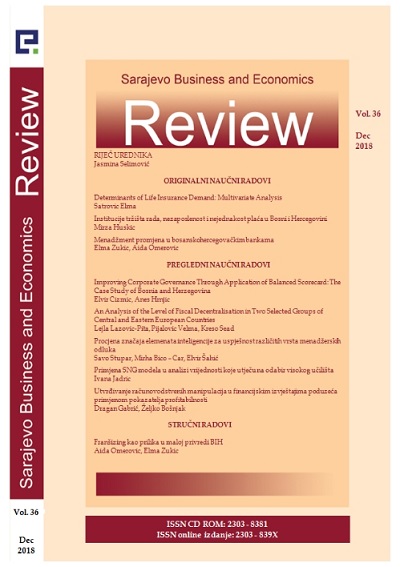Institucije tržišta rada, nezaposlenost i nejednakost plaća u Bosni i Hercegovini
Labor Market Institutions, Unemployment and Earnings Inequality in Bosnia and Herzegovina
Author(s): Mirza HuskićSubject(s): National Economy, Labor relations, Methodology and research technology, Economic development, Human Resources in Economy, Socio-Economic Research
Published by: Ekonomski fakultet u Sarajevu
Keywords: labor market institutions; unemployment; earnings inequality; Theil index; Gini index;
Summary/Abstract: This article examines the impact of labor market institutions and earnings inequality on unemployment in Bosnia and Herzegovina. In order to conduct econometric analysis of these relations two dynamic models were specified. The models are based on the labor market flexibility hypothesis and the assumptions of the Harris-Todaro model. The positive relationship has been identified between earnings inequality and unemployment rates, based on panel data for 12 administrative units within BiH for the period 2007-2014. The positive relationship was identified in the model where the Theil Index (which show earnings inequality between sectors) were used as indicators of earnings inequality and in the model with Gini index (which show the interpersonal earnings inequality among employees). On the other hand, relationship between labor market institutions and unemployment in BiH has not been identified in observed models. Such results are in contrast to the labor market flexibility hypothesis which implies that lower unemployment in transition countries is possible only in the case of deregulation of labor market institutions and greater inequality in wage distribution.
Journal: Zbornik radova - Sarajevo Business and Economics Review (SBER)
- Issue Year: 2018
- Issue No: 36
- Page Range: 26-52
- Page Count: 27
- Language: Bosnian

